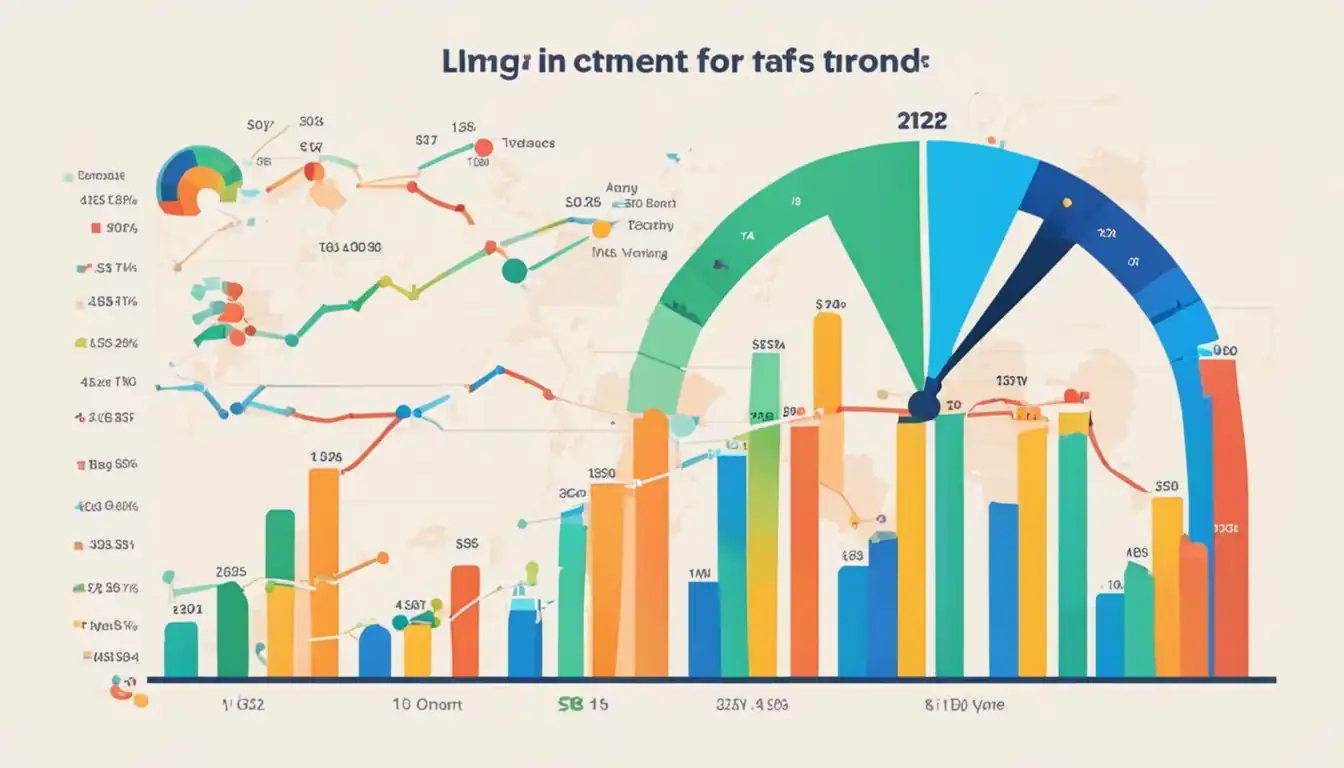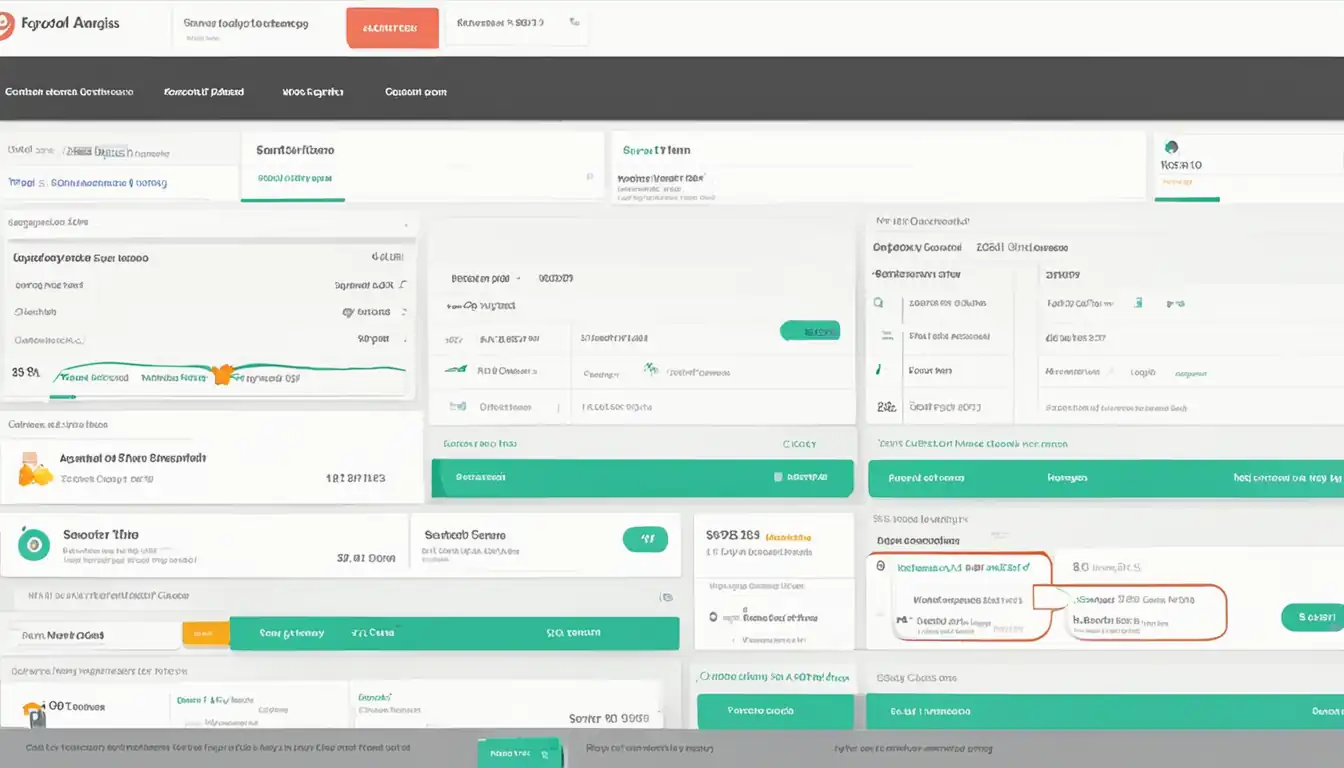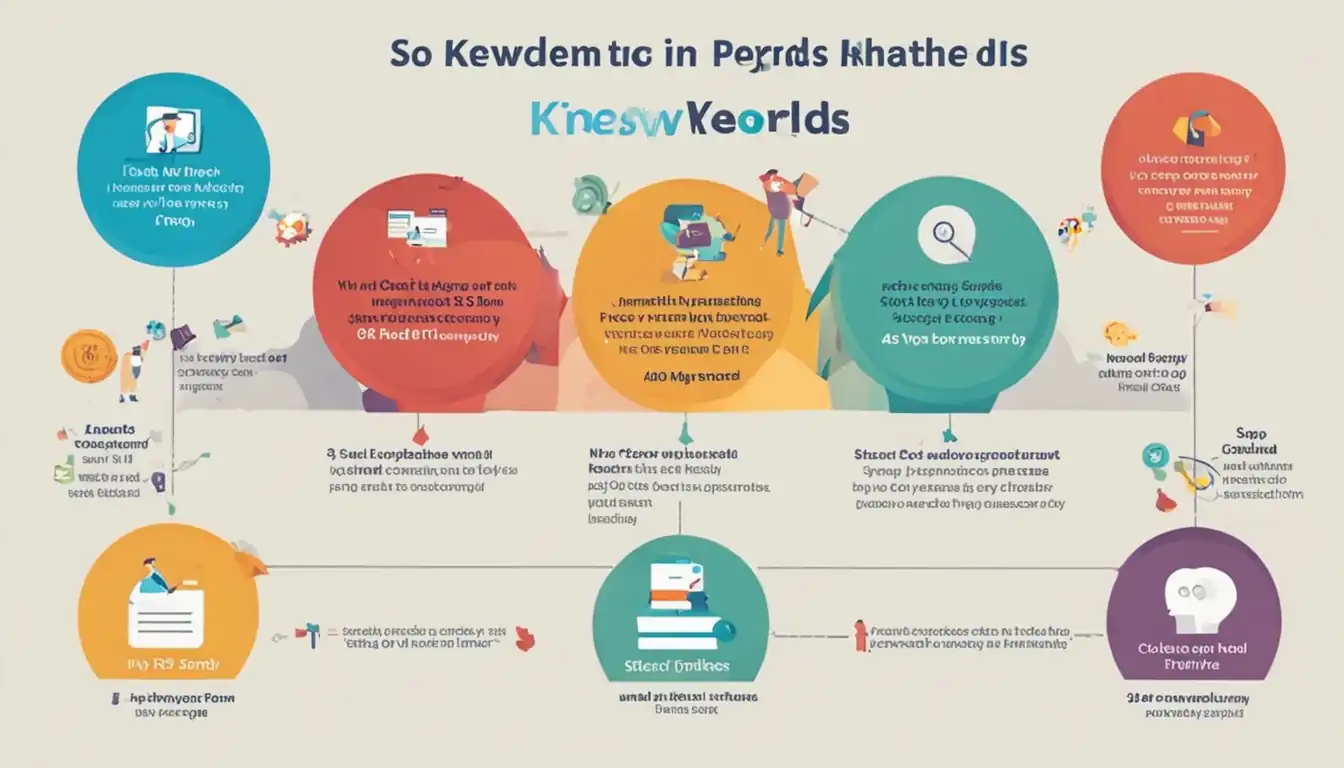Mastering Keyword Analysis: A Strategic Approach to SEO Success

If you're looking to up your SEO game, mastering keyword analysis is the key to unlocking success. In this comprehensive guide, we'll delve into the strategic approach to keyword analysis that will help you dominate the search engine rankings.
Unveiling the Essence of Keyword Analysis
 and strategic keyword analysis.](https://content-cdn.endlessseo.app/content/cls6ql32f000zj9a9mw1p53b9/assets/unveiling-the-essence-of-keyword-analysis-98afe4b6-6f36-41b1-ad60-2c8ca7072230.webp)
Keyword analysis is a fundamental aspect of SEO that plays a crucial role in determining the success of a website's online visibility. By delving into the intricacies of keyword analysis, businesses can gain valuable insights into the search behaviors of their target audience, enabling them to optimize their content and improve their search engine rankings.
Understanding the Role of Keywords in SEO
Keywords serve as the bridge between what users are searching for and the content that businesses provide. They act as the foundation upon which the entire SEO strategy is built, influencing the website's ability to attract organic traffic and engage with potential customers. By identifying and targeting the right keywords, businesses can align their content with the needs and interests of their audience, ultimately driving higher conversion rates and achieving their marketing objectives.
The Evolution of Keyword Analysis Over Time
The landscape of keyword analysis has evolved significantly over the years, reflecting the changing algorithms of search engines and the shifting preferences of online users. Initially, keyword analysis focused on identifying and incorporating high-volume keywords into content to rank higher in search results. However, with the advent of semantic search and natural language processing, the emphasis has shifted towards understanding user intent and delivering valuable, relevant content.
As search engines continue to refine their algorithms, keyword analysis has become more nuanced, requiring businesses to consider factors such as long-tail keywords, user context, and search intent. This evolution underscores the importance of staying abreast of the latest trends and best practices in keyword analysis to maintain a competitive edge in the digital landscape.
Setting the Stage for Keyword Analysis

When it comes to optimizing your website for search engines, the first step is setting the stage for keyword analysis. This involves identifying your target audience and aligning your business goals with keyword selection.
Identifying Your Target Audience
Before diving into keyword research, it's crucial to have a clear understanding of who your target audience is. Identifying the demographics, interests, and online behavior of your potential customers will help you tailor your keyword strategy to attract the right traffic to your website.
Aligning Business Goals with Keyword Selection
Once you have a clear picture of your target audience, the next step is to align your business goals with keyword selection. Choosing keywords that are relevant to your products or services, as well as your business objectives, will ensure that your SEO efforts are in line with your overall marketing strategy.
When it comes to crafting an effective SEO strategy, understanding the anatomy of a powerful keyword is crucial. By delving into the different components that make up a keyword, you can better optimize your content and improve your search engine rankings.
Search Volume and Why It Matters
One of the key components of a powerful keyword is its search volume. Search volume refers to the number of times a particular keyword is searched for within a given time frame. Understanding the search volume of a keyword is important because it gives you insight into the potential traffic and visibility that keyword can bring to your website. High search volume keywords are generally more competitive, but they also have the potential to drive a significant amount of traffic to your site. On the other hand, low search volume keywords may be less competitive, but they also have a smaller potential audience. Finding the right balance between search volume and competition is essential for choosing the most effective keywords for your content.
Understanding Keyword Intent for Better Alignment
Another crucial aspect of a powerful keyword is its intent. Keyword intent refers to the reason behind a user's search query. By understanding the intent behind a keyword, you can align your content to better meet the needs of your target audience. There are generally four types of keyword intent: navigational, informational, investigational, and transactional. Navigational keywords are used when a user is looking for a specific website or page. Informational keywords are used when a user is seeking information on a particular topic. Investigational keywords are used when a user is researching a product or service. Transactional keywords are used when a user is ready to make a purchase. By understanding the intent behind a keyword, you can create content that aligns with the user's needs and ultimately drives more valuable traffic to your site.
The Relevance of Keyword Difficulty
Finally, the keyword difficulty of a keyword is an important factor to consider when choosing powerful keywords for your content. Keyword difficulty measures how hard it is to rank for a particular keyword in search engine results. High difficulty keywords are typically more competitive and may require more time and effort to rank for, while low difficulty keywords are generally easier to rank for but may have lower search volumes. Finding the right balance between search volume, keyword intent, and keyword difficulty is essential for choosing powerful keywords that will drive valuable traffic to your site.
In conclusion, the anatomy of a powerful keyword encompasses search volume, keyword intent, and keyword difficulty. By understanding and optimizing these components, you can choose keywords that will effectively drive traffic and improve your search engine rankings.
Tools of the Trade: Leveraging Keyword Analysis Software
Keyword analysis is a crucial aspect of content-driven SEO, and having the right tools can make all the difference. There are a variety of keyword analysis tools available, each with its own unique features and benefits. In this section, we will explore some popular keyword analysis tools and compare the features of free vs. paid options.
Popular Keyword Analysis Tools and Their Features
When it comes to keyword analysis, there are several popular tools that are widely used in the industry. These tools offer a range of features to help you identify the most relevant and high-performing keywords for your content. Some of the most popular keyword analysis tools include:
Google Keyword Planner: This free tool provided by Google offers a wide range of features, including keyword suggestions, search volume data, and competition analysis. It is a great starting point for keyword research and is especially useful for those just starting out with SEO.
Semrush: Semrush is a paid tool that offers comprehensive keyword analysis features, including keyword difficulty, organic and paid search data, and competitor analysis. It is a favorite among SEO professionals for its robust features and in-depth insights.
Ahrefs: Ahrefs is another paid tool that is known for its extensive keyword database and advanced keyword research features. It provides valuable insights into keyword difficulty, search volume, and click-through rates, making it a powerful tool for optimizing content for search engines.
Comparing Free vs. Paid Keyword Tools
When it comes to choosing a keyword analysis tool, one of the key considerations is whether to opt for a free or paid option. Free tools like Google Keyword Planner can be a great starting point for those on a budget, offering basic keyword data and insights. However, paid tools like Semrush and Ahrefs provide more comprehensive features and in-depth analysis, making them well worth the investment for serious SEO professionals.
In conclusion, leveraging the right keyword analysis software is essential for optimizing your content for search engines. Whether you opt for a free or paid tool, the key is to choose a tool that aligns with your specific SEO needs and provides the insights necessary to drive organic traffic to your website.
The Art of Finding Gold: Keyword Discovery Techniques
When it comes to optimizing your website for search engines, keyword research is the first and most crucial step. Finding the right keywords can make or break your SEO strategy, so it's important to use effective techniques for discovering valuable keywords.
Brainstorming and Mind Mapping for Keyword Ideas
One of the most effective ways to start your keyword discovery process is by brainstorming and mind mapping. This involves coming up with a list of relevant topics and then branching out to identify related keywords. By using this technique, you can uncover a wide range of potential keywords that may not have been obvious at first glance.
Here are some tips for effective brainstorming and mind mapping:
- Start with broad topics related to your industry or niche
- Use a whiteboard or a mind mapping tool to visually map out related keywords
- Consider synonyms, related terms, and long-tail keywords
- Think about the intent behind the keywords and how they relate to your target audience
By using brainstorming and mind mapping, you can uncover a wealth of keyword ideas that may not have been immediately obvious. This technique can help you think outside the box and discover valuable keywords that your competitors may have overlooked.
Analyzing Competitors for Hidden Keyword Gems
Another valuable technique for keyword discovery is analyzing your competitors' websites. By looking at the keywords they are targeting, you can uncover hidden keyword gems that may be valuable for your own SEO strategy.
Here are some steps for analyzing competitors for keyword ideas:
- Identify your main competitors in the industry or niche
- Use SEO tools to analyze their website for the keywords they are ranking for
- Look for keywords that have high search volume and low competition
- Consider targeting keywords that your competitors may have overlooked or not fully optimized for
By analyzing your competitors for hidden keyword gems, you can gain valuable insights into the keywords that are driving traffic to their websites. This technique can help you identify valuable keyword opportunities that may have been overlooked in your initial keyword research.
In conclusion, brainstorming and mind mapping, as well as analyzing competitors, are two effective techniques for discovering valuable keywords. By using these techniques, you can uncover a wide range of keyword ideas that can help drive organic traffic to your website and improve your overall SEO strategy.
Crafting a Keyword Analysis Strategy
When it comes to crafting a keyword analysis strategy, it's important to consider the balance between long-tail and short-tail keywords. Long-tail keywords are more specific and targeted, often leading to higher conversion rates, while short-tail keywords are broader and more competitive. Finding the right balance for your content is crucial for driving organic traffic and achieving your SEO goals.
In addition to considering the balance between long-tail and short-tail keywords, it's also important to take into account seasonality and trends in keyword planning. Seasonality can have a significant impact on search behavior, with certain keywords experiencing fluctuations in search volume throughout the year. Trend analysis allows you to identify emerging topics and capitalize on current interests, ensuring that your content remains relevant and engaging for your target audience.
By incorporating both long-tail and short-tail keywords, as well as considering seasonality and trend analysis in your keyword planning, you can develop a comprehensive strategy that maximizes the visibility and impact of your content.
Beyond the Basics: Advanced Keyword Analysis Tactics
When it comes to keyword analysis, there are advanced tactics that can take your SEO strategy to the next level. Two of these tactics include utilizing Latent Semantic Indexing (LSI) keywords and the power of localized keywords for geo-targeting.
Utilizing Latent Semantic Indexing (LSI) Keywords
LSI keywords are related terms and phrases that are semantically linked to your main keyword. By incorporating LSI keywords into your content, you can provide more context to search engines, which can improve your rankings. To find LSI keywords, you can use tools like LSI Graph or Google's related searches feature. Incorporating LSI keywords naturally into your content can help you rank for a wider range of search terms and improve the overall relevance of your content.
The Power of Localized Keywords for Geo-Targeting
For businesses that target specific geographic locations, utilizing localized keywords is crucial. By incorporating location-specific terms into your content, you can improve your chances of ranking for local searches. This can include city names, neighborhood names, or other location-specific terms that are relevant to your target audience. Additionally, creating location-specific landing pages can further enhance your geo-targeting efforts and improve your visibility in local search results.
Keyword Analysis in Action: Real-World Examples

Case Study: E-commerce Keyword Strategy
In this case study, we will analyze the keyword strategy of an e-commerce website selling outdoor gear. The website's goal is to increase organic traffic and drive sales through targeted keyword optimization.
The first step in the keyword analysis process was to identify high-volume, low-competition keywords related to outdoor gear. Using a combination of keyword research tools and competitor analysis, the team was able to pinpoint specific long-tail keywords that aligned with the website's product offerings.
Next, the team implemented these keywords strategically throughout the website, including in product descriptions, category pages, and blog content. By optimizing the site for these targeted keywords, the e-commerce website saw a significant increase in organic traffic and, ultimately, sales.
Case Study: Blogging for Niche Audiences
In this case study, we will explore how a niche blog used keyword analysis to grow its audience and increase engagement. The blog focuses on sustainable living and eco-friendly products, targeting a specific audience interested in environmental conservation and green living.
Through thorough keyword research, the blog was able to identify specific topics and keywords that resonated with their target audience. By creating high-quality, informative content around these keywords, the blog was able to attract a dedicated following of like-minded individuals.
Additionally, the blog's keyword-optimized content ranked well in search engine results, further increasing its visibility and attracting new readers. As a result of their keyword analysis and strategic content creation, the niche blog was able to establish itself as a leading resource in the sustainable living space.
Measuring the Impact of Your Keyword Strategy
When it comes to measuring the impact of your keyword strategy, it's important to look at the key performance indicators (KPIs) for keyword success. These KPIs can include metrics such as organic traffic, keyword rankings, click-through rates, and conversion rates. By analyzing these KPIs, you can gain valuable insights into the effectiveness of your keyword strategy and make data-driven decisions for optimization.
Adapting and evolving your strategy based on analytics is crucial for staying competitive in the ever-changing landscape of SEO. By regularly monitoring and analyzing the performance of your keywords, you can identify trends, opportunities, and areas for improvement. This allows you to make informed adjustments to your strategy, ensuring that you are always optimizing for the best possible results.
In conclusion, measuring the impact of your keyword strategy and adapting based on analytics is essential for achieving long-term success in SEO. By staying proactive and data-driven, you can continuously improve your keyword strategy and stay ahead of the competition.
Common Pitfalls in Keyword Analysis and How to Avoid Them

When it comes to keyword analysis, there are several common pitfalls that can hinder the effectiveness of your SEO strategy. It's important to be aware of these pitfalls and know how to avoid them in order to achieve optimal results.
Over-Optimization: Striking the Right Balance
One common pitfall in keyword analysis is over-optimization. This occurs when website content is stuffed with keywords in an attempt to manipulate search engine rankings. While it's important to include relevant keywords in your content, over-optimization can actually have a negative impact on your SEO efforts. Striking the right balance between using keywords naturally and avoiding over-optimization is crucial for success.
Staying Clear of Keyword Cannibalization
Another pitfall to watch out for is keyword cannibalization. This happens when multiple pages on your website are targeting the same keyword or set of keywords. When this occurs, it can confuse search engines and dilute the authority of your content. To stay clear of keyword cannibalization, it's important to conduct thorough keyword research and ensure that each page on your website has a unique focus and set of keywords.
By being mindful of these common pitfalls and taking proactive steps to avoid them, you can enhance the effectiveness of your keyword analysis and improve your overall SEO strategy.
Future-Proofing Your Keyword Analysis
In the ever-changing world of SEO, it's crucial to future-proof your keyword analysis to stay ahead of algorithm changes and trends. By adapting to the latest developments in predictive analysis, you can ensure that your keyword strategy remains effective in the future.
Keeping Up with Algorithm Changes
Search engine algorithms are constantly evolving, and what works today may not work tomorrow. To future-proof your keyword analysis, it's essential to stay informed about algorithm changes and updates. This means keeping a close eye on industry news, attending SEO conferences, and following reputable SEO blogs. By staying ahead of the curve, you can make proactive adjustments to your keyword strategy and avoid being caught off guard by algorithm updates.
Predictive Analysis and the Future of Keywords
Predictive analysis is the key to future-proofing your keyword analysis. By leveraging predictive analytics tools, you can anticipate future keyword trends and adjust your strategy accordingly. These tools can help you identify emerging search patterns, understand user intent, and predict the impact of algorithm changes on keyword rankings. By incorporating predictive analysis into your keyword strategy, you can stay ahead of the competition and ensure long-term success in the ever-changing world of SEO.
Wrapping It Up: Next Steps After Keyword Analysis

After completing your keyword analysis, it's time to take the next steps in your SEO strategy. Integrating your keywords into your content strategy is crucial for improving your website's search engine rankings. By incorporating your keywords into your content, you can increase the relevance of your website to search engines and attract more organic traffic.
In addition to integrating keywords into your content, continuous learning and adaptation are essential in the ever-evolving world of SEO. Staying up to date with the latest trends and algorithm updates will help you refine your SEO strategy and stay ahead of the competition. Remember, SEO is an ongoing process, and the more you learn and adapt, the better results you'll achieve.
Conclusion
Now that you've mastered the art of keyword analysis, it's time to put your newfound knowledge into action. By integrating keywords into your content strategy and staying ahead of algorithm changes, you'll be well on your way to SEO success. Remember, continuous learning and adaptation are crucial in the ever-evolving world of SEO.